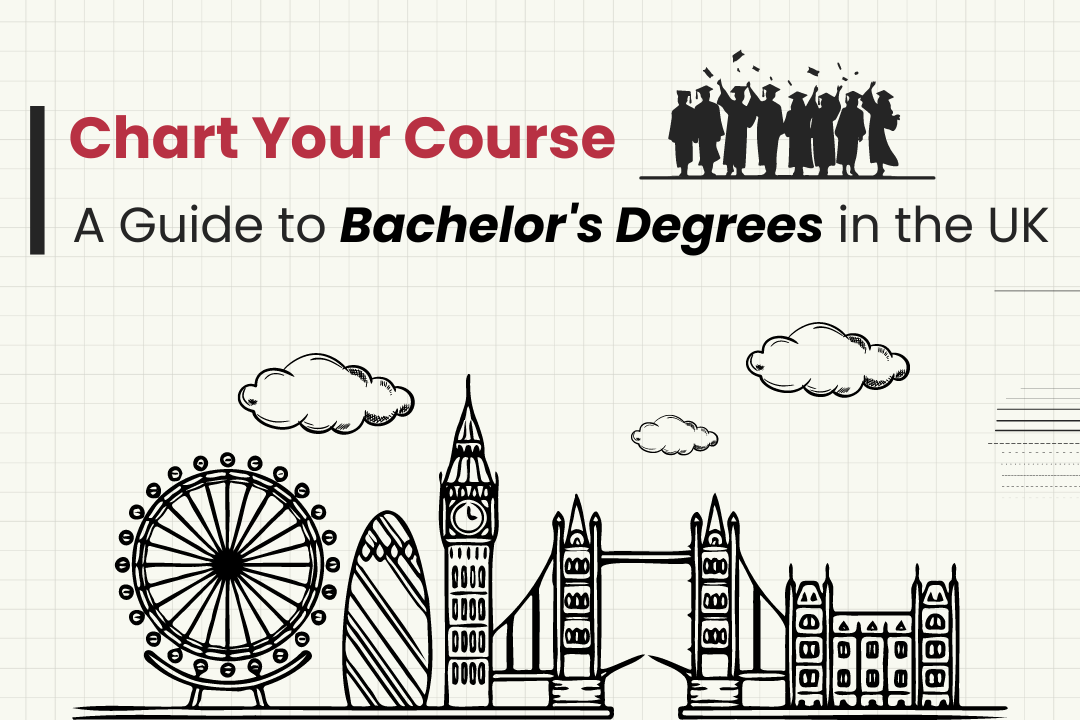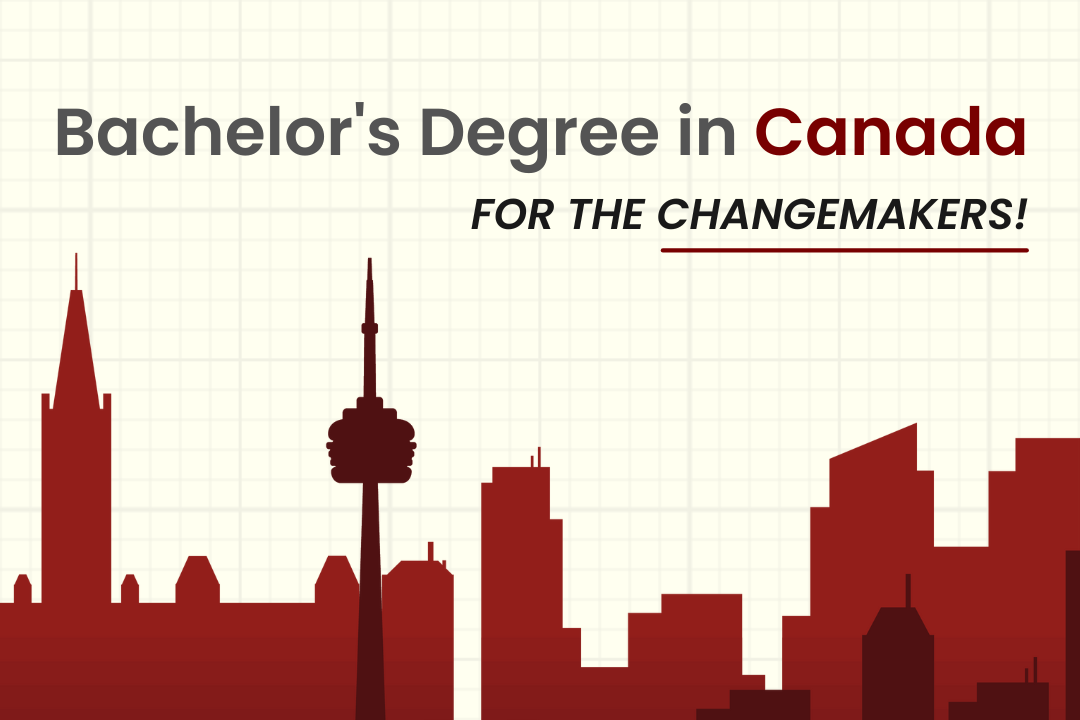
You need not be born with a silver spoon to study abroad! It’s usually portrayed that studying abroad is only for the elite class, but at the end of the day, what matters is your knowledge and academic expertise but not your financial background. With that being said, let’s understand different possible ways to study abroad by leveraging very lesser-known methods and the exact procedure for each of the ways to fulfil your dream of overseas education in the most affordable way. If you think scholarships to study abroad are the best ways to finish your education affordably, you are not correct. You are not wrong either!
Scholarships are just one of the most popular ways, but let’s explore some other options as well, along with study abroad scholarships.
Leverage Scholarships That Sponsor UG Courses Abroad for Indian Students
If you are planning to take your UG course from a foreign university, you can be benefitted from various scholarships for Indian students to study abroad that are aimed at sponsoring the meritorious Indian students who fulfil the necessary criteria to be eligible for availing those scholarships. Please note that we will only be looking at the monetary benefits of different scholarships, and we are intentionally ignoring the eligibility criteria to keep the blog concise. So, it’s advised to research a specific scholarship that excites you in the following list to know more about stuff other than monetary benefits.
Oxford and Cambridge Society of India Scholarship
A monetary benefit of INR 2,00,000 will be provided for Indian Students planning to pursue their UG course(full-time or part-time) at either Cambridge or Oxford University or any other colleges affiliated with them in the United Kingdom.
Quacquarelli Symonds Undergraduate Scholarship
Students who fulfil the eligibility criteria can avail of a monetary benefit of up to INR 4,00,00($5,000) to study in QS-ranked institutions in countries like the USA, UK, Singapore, etc.
UCD Global Graduate Scholarships
Indian students who want to study in Dublin after their class 12th can be benefitted from UCD global graduate scholarships that sponsor 50% of tuition fees. In some cases, the students can also get 100% of the tuition fees by fulfilling the eligibility criteria.
TATA Educational Development Trust Scholarship
Indian students who get eligible for this scholarship will get a fully funded scholarship by Tata Education and development trust to pursue their undergraduate courses at Cornell University in New York. As the trust can sponsor only twenty students a year, it’s going to be really competitive to become eligible for the scholarship.
Make Use of the Education Loans
Just like any other kind of loan, education loans for abroad studies are also very risky, and it’s advised to think twice before committing to an education loan to fulling your overseas education. Education Loan is a very broad concept, but let’s keep it simple by understanding how it’s going to help students like you complete their overseas education with ease.
Before applying for an education loan, consider two things.
1. Repayment Tenure
2. Your ability to repay the loan.
There is no need to overcomplexify this topic. You can directly approach many consultancy services available out there that process the education loan for students and get detailed information like the eligibility criteria, required documents, repayment tenure etc.
Many Banks in India offer Education loans to cover the entire tuition fee. The question over here is your eligibility to repay the loan on time. If you are crystal clear about your career and calculated enough about your earning potential, opting for an education loan can be the best option to study abroad.
Consider Choosing a Three-Year UG Program
Opting for a UG course with a three-year duration over a four-year long course can save you a year’s tuition fee and other expenses for one long year. This might not be that sensible to think this way to cut down your study abroad expenses, but we just want to shed light on different possibilities. However, the three-year UG programs are also very popular and widely recognised across the globe.
But before diving in, you need to keep two things in mind:
- Make sure that this three-year degree won’t cause you any trouble during your admission into the PG course, as some universities don’t accept students with a three-year UG certificate.
- Most popular and in-demand UG programs, like Engineering, are usually four-year-long. So, don’t choose your UG program based on the duration, but choose it based on your interest.
Leverage The Free Education Privileges Offered by Some Countries
Taking up a part-time job while studying abroad can help in taking care of your expenses and cover the study abroad costs to a significant extent. Now let’s look at how you can work part-time and study in the most popular study abroad destinations for Indian students based on the rules and regulations.
Work Part Time Along With Studies
Taking up a part-time job while studying abroad can help in taking care of your expenses and cover the study abroad costs to a significant extent. Now let’s look at how you can work part-time and study in the most popular study abroad destinations for Indian students based on the rules and regulations.
Working Part-Time While Studying in the USA
With an F-1 Visa, an international student can for 20 hours a week during the study period on campus and can work up to 40 hours a week during holidays and vacations. Please note that whatever part-time work you take up, it must be done for the institute you study.
Working Part-Time While Studying in the UK
Students who want to simultaneously hustle along with studies in the UK must have a Tier 4 Visa. To get eligibility for this Visa, it’s a must for the student to complete six months of studies in the United Kingdom. Depending on the course, a student can work ten to twenty hours per week during the study period, and it can be extended up to 40 hours a week during the vacation period with a work permit.
Working Part-Time While Studying in Canada
You must be pursuing your studies full-time in a Designated Learning Institute in Canada in order to work while studying. A student permit that allows you to work off-campus is also needed. After fulfilling the criteria, students can work up to 20 hours a week. A Social Insurance Number is also needed for students to work part-time in Canada while studying.
Working Part-Time While Studying in Australia
Foreign students studying in Australia are allowed to work
with a Student Visa can take up part-time work up to 20 hours a week, and during vacation, students will be allowed to work full-time.
Australia is well known for being one of the best countries to study and work for many international students as it’s very easy to get part-time work opportunities in Australia when compared to other countries, and that’s what makes it more affordable for students wishing to study abroad.
FAQs
We can’t really declare a country to be cheap or affordable, as study abroad expenses depend on various factors like the course type, eligibility for scholarships etc. Thorough research needs to be done from the student’s end to get an answer to this question.
Almost all countries have similar guidelines for part-time work along with studies. In Australia, you can work full-time during semester breaks/holidays. So, it can be better for those looking to work while studying.
Never try to do that! You will face two serious consequences for trying to work overtime while studying abroad. First, your college/ university will take action for not abiding by the rules. Secondly, you may risk your Visa, which is the worst thing that a foreign student would face.
Many people choose to study abroad, understand different cultures, meet new people and explore based on real-time experiences. But, again, it depends on individual preferences.








